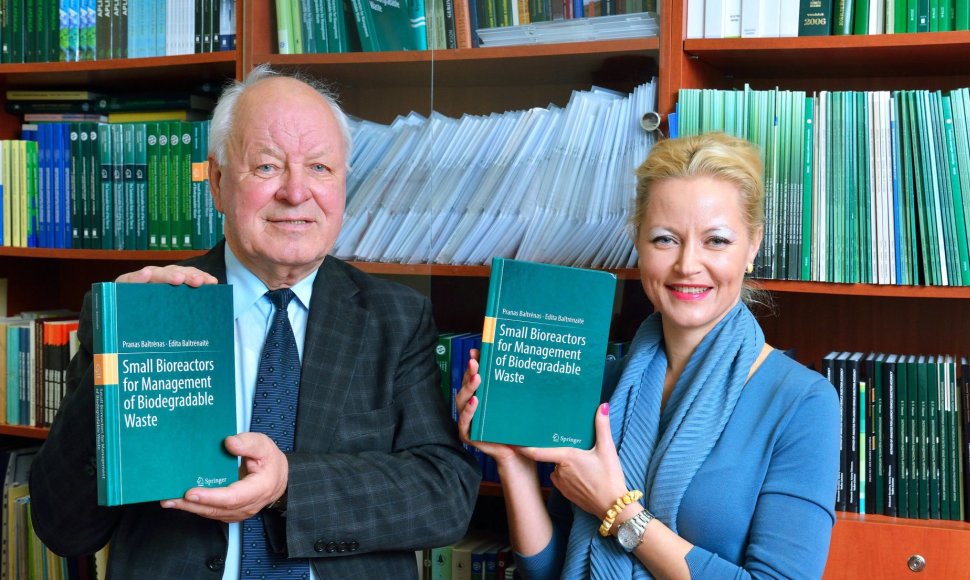Scientists at VGTU have been carrying out research on biological air filters for many years. This time they came up with an idea to improve a biofilter, which they have invented earlier, and to create a vertical lamellar biofilter-absorber. “This biofilter is constructed from vertical tubes, which are filled with bio-charcoal and special wood fibres, and are aligned in multiple planes. The wood fibres are processed under high temperature and high pressure. The process results in fibres that are resistant to decay. Under favourable conditions – moisture and higher temperature – microorganisms start to appear in tubes filled with bio-charcoal and wood fibres. These microorganisms clean the air flowing through the tubes from organic materials and chemical pollutants,” P. Baltrėnas describes how does the biofilter work.
According to him, microorganisms are capable of cleaning the air completely from organic materials – acetone, selenium, ammonia and other materials. The air that leaves the biofilter is clean. In practice it can be used anywhere, where large amounts of organic pollutants are emitted, for example in furniture manufacturing plants, especially with painting or varnishing processes; or agriculture where large amounts of ammonia is emitted.
“People, who live nearby large farms, often complain about the odour. Farmers could use the biofilter to clean the air leaving their farms. It would result in both the cleaner air and reduced levels of odour, as the filter produces almost odourless air,” noted the scientist.
According to P. Baltrėnas, currently there are only small number of businesses that use biological treatment equipment. And those usually have older equipment with filter cassettes filled with materials that are suitable for unfavourable microorganisms. Nevertheless, the biggest disadvantage of this type of equipment is that the air is cleaned better the more filter cassettes there are, but if the number of filter cassettes is too high then the air cannot leave and blocks the filter. Researchers at VGTU tried to overcome this problem by suggesting vertical tubes where air resistance is not high.
The longevity of the new filter is one of the advantages of the new equipment, as scientist at VGTU notes. Bio-charcoal is enduring and wood fibres are resistant to decay; they do not have to be replaced often – biofilter can be used for 10 years or longer. Another important aspect of the filter – the air is cleaned by microorganisms and there is no waste, everything is consumed.












